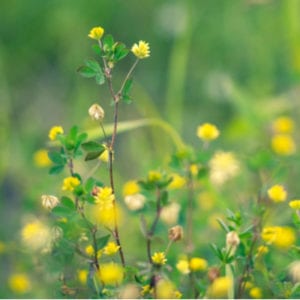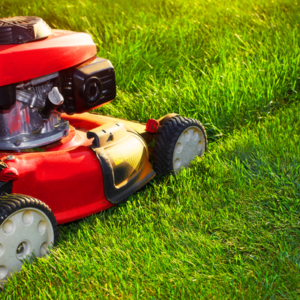It’s summer in Delaware, and that means late nights around the campfire, backyard barbeques, and fun with the family outside. The last thing you should have to worry about is weeds popping up and ruining the look of your yard.
Summer weeds can sneak into your yard by hitching a ride on the wind or from messy birds. Keeping up a healthy lawn with a maintenance plan that includes proper fertilization and weed control will help keep weed infestations at bay. However, the above-average temperatures we have been experiencing so far this summer are causing weeds to crop up everywhere. This is because when temperatures rise, weeds grow more slowly and develop thicker cuticles. Doing so reduces the movement of herbicides traveling through their root system and makes them harder to control.
Common Weeds in Delaware
There are a few common weeds that show their unsightly faces every summer to annoy us. Some of them include:
Crabgrass
Crabgrass is an annual weed that tends to show up in areas of thinning or weak grass. Once the soil temperature reaches 50 degrees, and a warm rain occurs, crabgrass germinates and grows rapidly. It is one of the fastest-growing types of grass, and one plant can spread up to 150,000 seeds. It gets the name crabgrass because the leaves branch out from a stem in a star formation resembling the legs of a crab. You can often find this weed alongside paved surfaces or fence lines. 
Black Medic
Black medic has heart-shaped leaves and yellow flowers. As the plant matures, the stems become hairy and square. The yellow flowers are produced from May through September. It thrives in drought conditions and nutrient poor soil. Black Medic can be confused for another weed called oxalis, but a way to tell the difference is the long stem on its central leaf and the black seed pod it gets in the summer.
Plantain
There are two types of plantain weeds, broadleaf plantain, and narrow-leaf, or buckhorn plant. Broadleaf plantains have smooth, oval leaves. Buckhorn plantains have ribbed leaves. Plantain weeds are mostly found in compacted soil and neglected lawns. The best way to prevent and control plantain is by maintaining a healthy lawn with a regular fertilizer schedule and proper irrigation. If your grass contains plantain, there is a good chance your yard is feeling neglected. Plantain can also contaminate lawn equipment, so be sure to clean it thoroughly before using it to help spread this unsightly weed.
Keep Your Grass Healthy
Weeds need two important things to germinate; sunlight and warm temperatures. By keeping your yard healthy, your grass will naturally thicken up and block the sunlight from reaching the soil. It’s important to only water when necessary. Usually, two to three times per week is fine, and that’s including rain showers. Water deeply to promote rapid root growth, which will, in turn, thicken up your lawn. Water early in the day so your yard has a chance to dry up before nighttime temperatures put it at risk for fungus and disease.
Mow High
In order to encourage a thick lawn you need to let it grow a little higher. Cool-season grasses should be cut at about two and a half inches. Keeping your grass taller allows for less sunlight to penetrate down to the weed seeds. 
Mulch
Mulch can work well to prevent weeds from crowding around your trees, shrubs, and flower beds. Not only does mulch retain moisture to benefit your plants, but it blocks out the sunlight weed seeds need to mount their attack.
Hire the Lawn Care Experts
Fighting weeds is a year-round battle. Take the hard work out of your hands and trust it to a lawn care professional. Here at Quality Cut Lawn Service, we offer a five-step lawn fertilization program that will help keep your lawn healthy and thriving all year long. We also provide mowing and mulching service. Allow us to take the hassle out of weed removal and weed prevention for you.
Call us today at (302) 420 – 7597 or request a quote. Check our monthly blog for even more lawn care tips.
